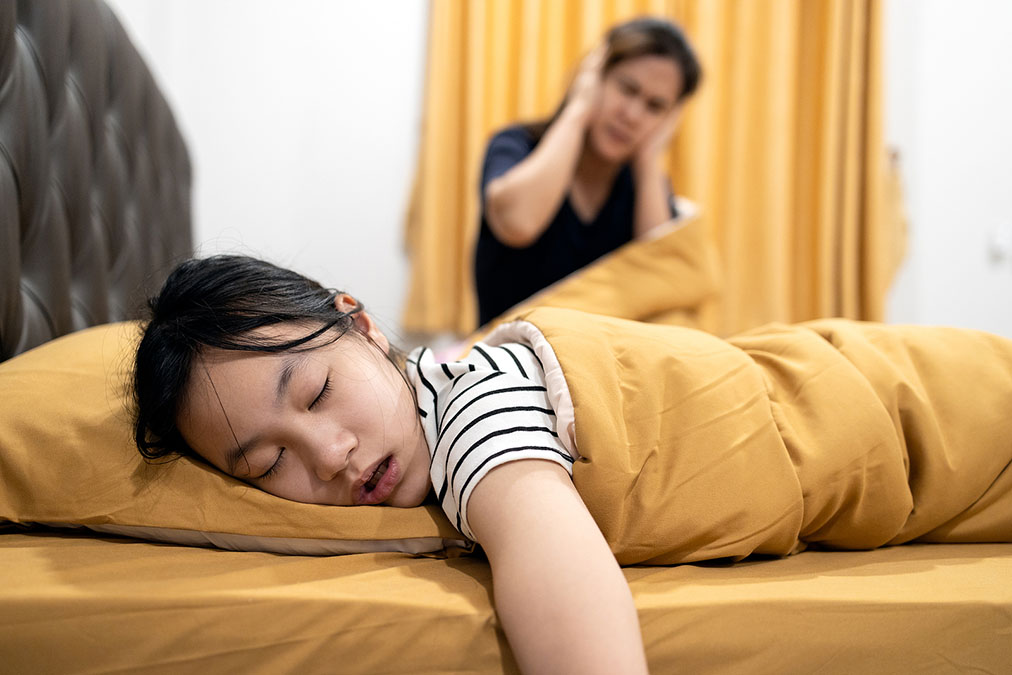 The traditional medical system has one solution for sleep apnea: CPAP (or continuous positive airway pressure).
The traditional medical system has one solution for sleep apnea: CPAP (or continuous positive airway pressure).
The problem is that it’s uncomfortable, so the majority of people stop using it. Plus it’s just a treatment, not a cure.
But a new study published in the journal JAMA Network Open reveals a completely free, natural way to permanently cure sleep apnea (and improve your overall health).
Obesity is considered to be the strongest risk factor for sleep apnea, with almost all scientists agreeing on this.
But the question that has still not been well studied is the effect of weight loss on CPAP treatment. In other words, does weight loss treat sleep apnea sufficiently well to allow patients to ditch the dreaded CPAP treatment?
To find out, a research team led by the University of Granada recruited 89 men between ages 18 and 65 with moderate or severe sleep apnea. All of them had a body mass index score of 25 and above, meaning that they were all either overweight or obese. They were all receiving CPAP treatment.
The researchers divided them into two groups: one that received only their usual CPAP treatment, and the other that received their CPAP treatment in addition to an interdisciplinary weight loss and lifestyle intervention program.
This program continued for eight weeks and consisted of dietary change, aerobic exercise, a better sleep routine and hygiene, and the elimination of alcohol and tobacco.
They measured their subjects’ apnea-hypopnea index (their number of breathing pauses) before the study, after eight weeks, and again after six months to see whether the effects lasted.
They discovered that the weight loss intervention was very effective and enduring.
-
1. After eight weeks, the intervention group lost 21.2 breathing pauses per hour on the apnea-hypopnea index whereas the control group added 2.5.
2. After six months, the intervention group experienced 23.8 fewer breathing pauses per hour than the control group did, showing that the benefits did not just last, but continued to improve after the intervention program ended.
3. After eight weeks, 45% of the subjects in the intervention group no longer needed CPAP, a number that increased to 62% by the end of six months.
4. 15% of subjects in the intervention group were completely free of sleep apnea by the end of eight weeks, and 30% managed to cure it completely by the end of six months.
All this means that you can get rid of your sleep apnea and uncomfortable CPAP-laden sleep in less than one year by attending to the five healthy lifestyle changes described above.

 Overcoming IBD
Overcoming IBD Multiple Sclerosis
Multiple Sclerosis Banishing Bronchitis
Banishing Bronchitis Gum Disease Gone
Gum Disease Gone Overcoming Onychomycosis
Overcoming Onychomycosis Neuropathy No More
Neuropathy No More The Prostate Protocol
The Prostate Protocol Brain Booster
Brain Booster
 Ironbound
Ironbound
 Solution for Shingles
Solution for Shingles
 The Bone Density Solution
The Bone Density Solution
 The Ultimate Healing Protocol
The Ultimate Healing Protocol
 The Parkinson's Protocol
The Parkinson's Protocol
 The Chronic Kidney Disease Solution
The Chronic Kidney Disease Solution
 Overthrowing Anxiety
Overthrowing Anxiety The Fatty Liver Solution
The Fatty Liver Solution The Hypothyroidism Solution
The Hypothyroidism Solution
 The End of Gout
The End of Gout The Blood Pressure Program
The Blood Pressure Program
 The Oxigized Cholesterol Strategy
The Oxigized Cholesterol Strategy
 Stop Snoring And Sleep Apnea Program
Stop Snoring And Sleep Apnea Program
 The Arthritis Strategy
The Arthritis Strategy The Vertigo & Dizziness Program
The Vertigo & Dizziness Program The 3-Step Diabetes Strategy
The 3-Step Diabetes Strategy Hemorrhoids Healing Protocol
Hemorrhoids Healing Protocol The Erectile Dysfunction Master
The Erectile Dysfunction Master Weight Loss Breeze
Weight Loss Breeze The IBS Program
The IBS Program The Insomnia Program
The Insomnia Program The Migraine and Headache Program
The Migraine and Headache Program The Neck Pain Solution
The Neck Pain Solution The Menopause Solution
The Menopause Solution The Ejaculation Master
The Ejaculation Master The TMJ Solution
The TMJ Solution The Acid Reflux Solution
The Acid Reflux Solution The Fibromyalgia Solution
The Fibromyalgia Solution The Psoriasis Strategy
The Psoriasis Strategy